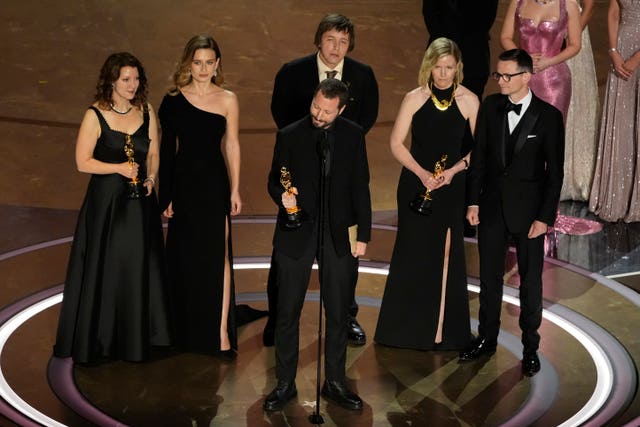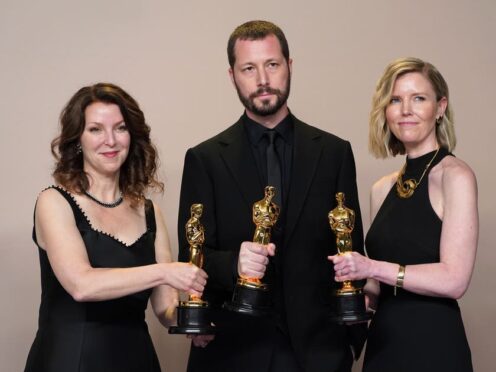The director of 20 Days In Mariupol has said he wished that he did not have to make his Oscar-winning film.
The documentary tells the story of the 20 days that Mstyslav Chernov spent with his colleagues from the Associated Press (AP) news agency in the Ukrainian city of Mariupol after Russia invaded.
Taking to the stage at the Dolby Theatre in Los Angeles on Sunday, Chernov said he was “honoured” to take home the first Oscar for Ukraine.

He added: “I probably will be the first director on this stage to say I wish I never would have made this film.
“I wish to be able to exchange this (for) Russia never attacking Ukraine, never occupying our cities.
“I wish to give all the recognition (of winning an Oscar for) Russia not killing 10,000s of my fellow Ukrainians.
“I wish for them to release all the hostages, all the soldiers who (were) protecting their land, all the civilians who are now in their jails but I cannot change history, I cannot change the past.
“But we all together, you… some of the most talented people in the world can make sure the history record is set straight and the truth will prevail and that the people of Mariupol and those who have given their lives will never be forgotten because cinema forms memories, and memories form history.”
Congratulations to '20 Days in Mariupol' — this year's Best Documentary Feature Film! #Oscars pic.twitter.com/y1Qsf7bTpm
— The Academy (@TheAcademy) March 11, 2024
Chernov signed off by saying “Slava Ukraini”, meaning Glory to Ukraine, a phrase which has become more popular since the war broke out.
February marked two years since the Kremlin launched a full-scale invasion of Ukraine, with Chernov saying in the winners room that Saturday also marked the “anniversary of an attack on the maternity hospital in Mariupol”.
He called the bombing “a symbol of war crimes” perpetrated by Russian forces.
Chernov added: “The topic of supporting Ukraine became a bargaining chip for a lot of politicians in the world… I hope I remind everyone with our film that this is a humanitarian catastrophe and this is not a political question, this is a humanitarian emergency.”
He also spoke about how his “heart is in Ukraine” as people in his home country continue to be hit by bombing and attacks.
